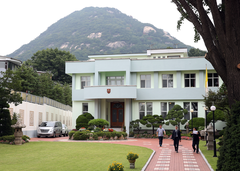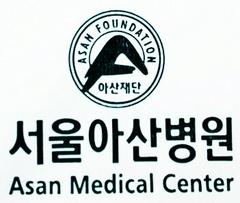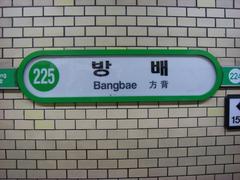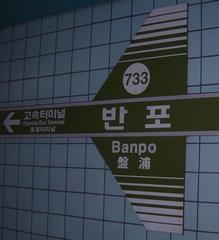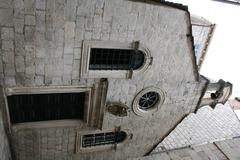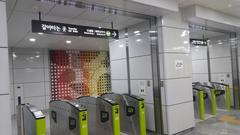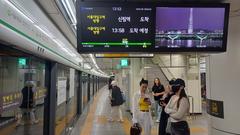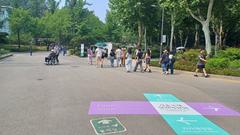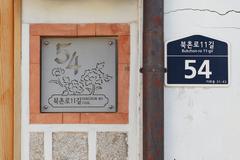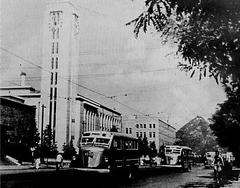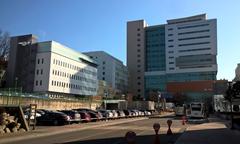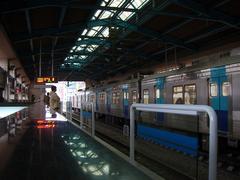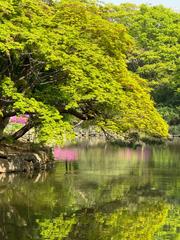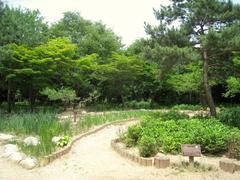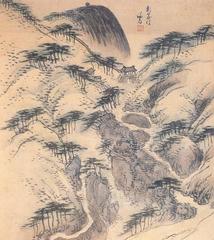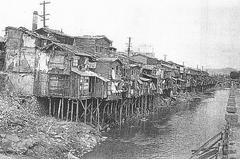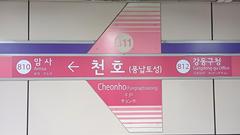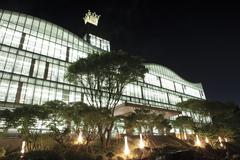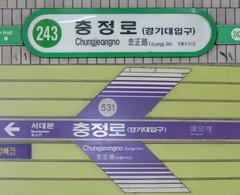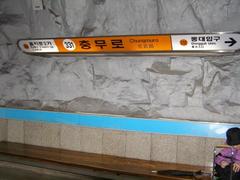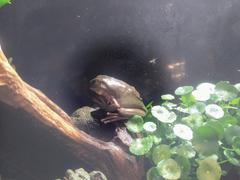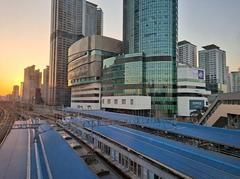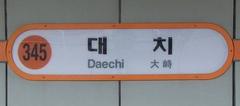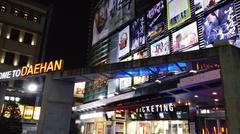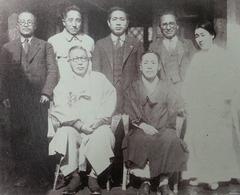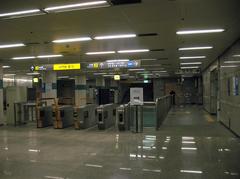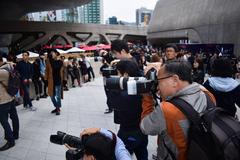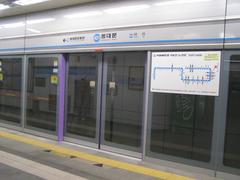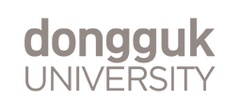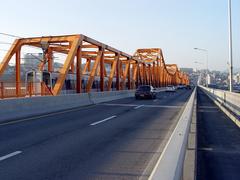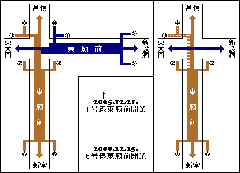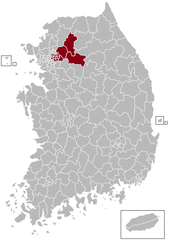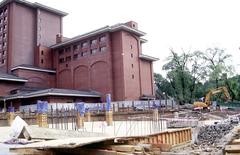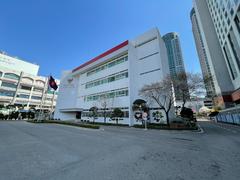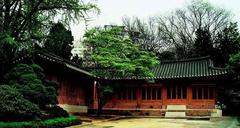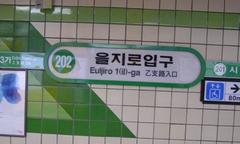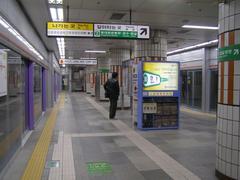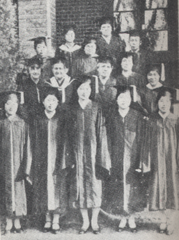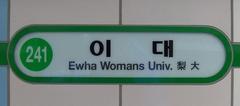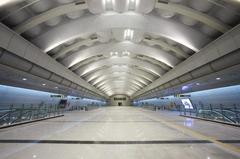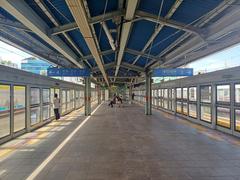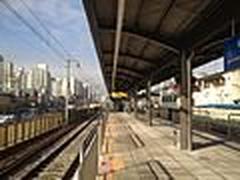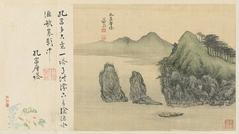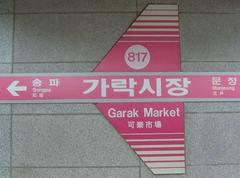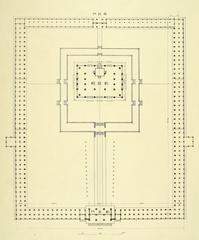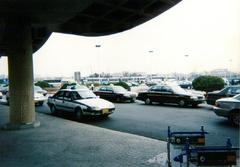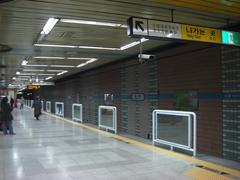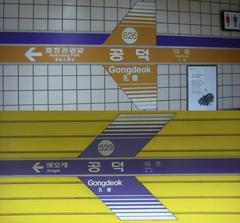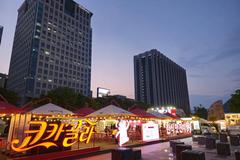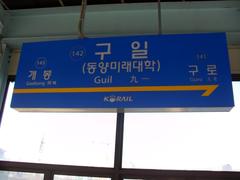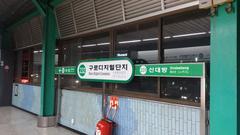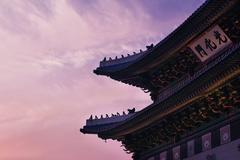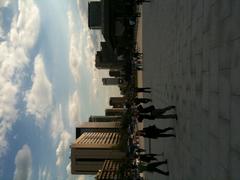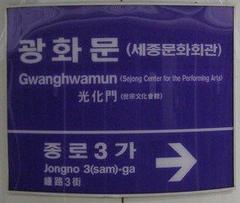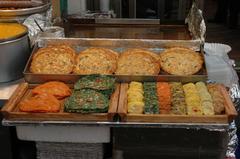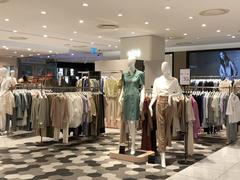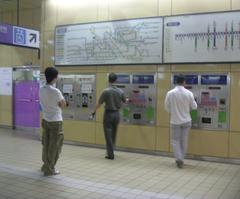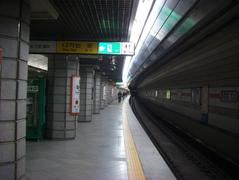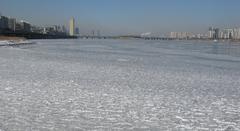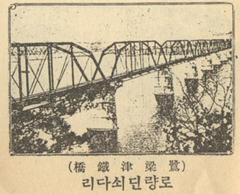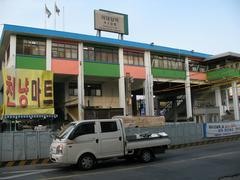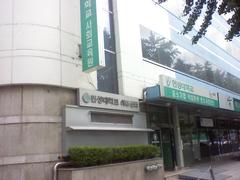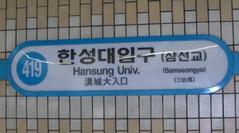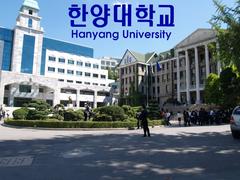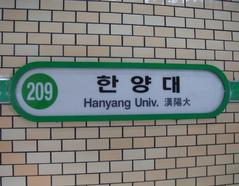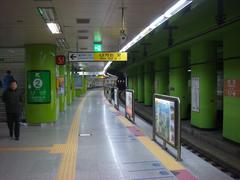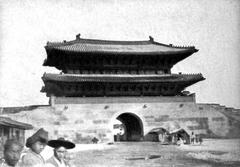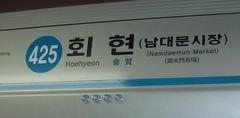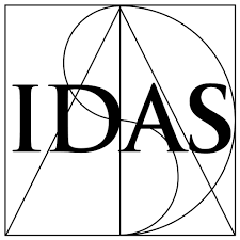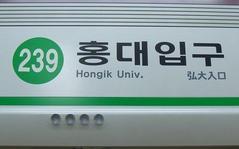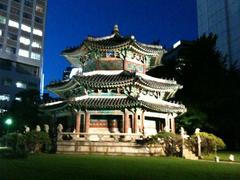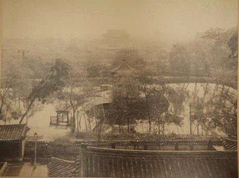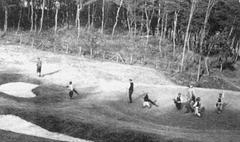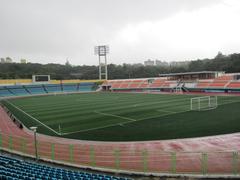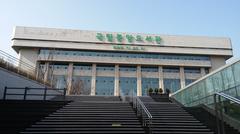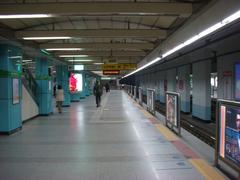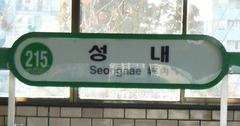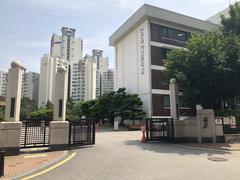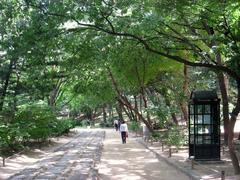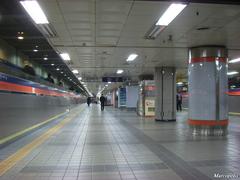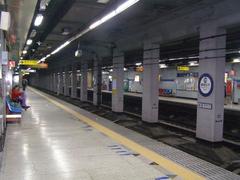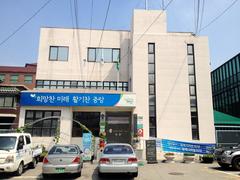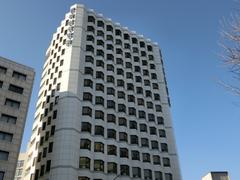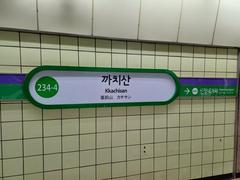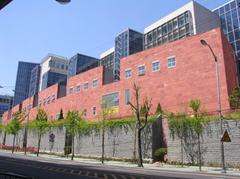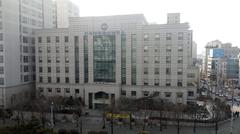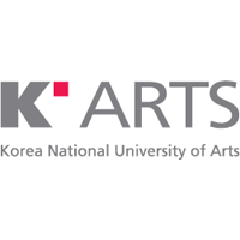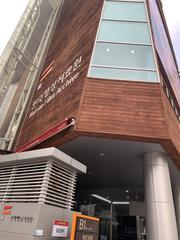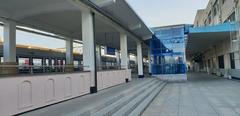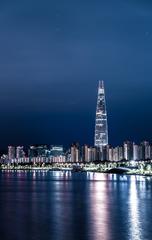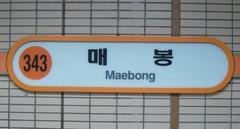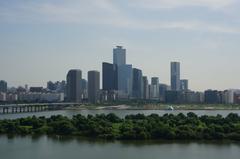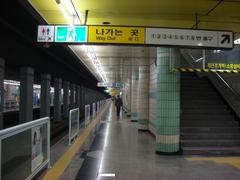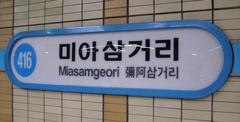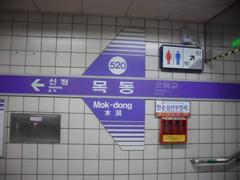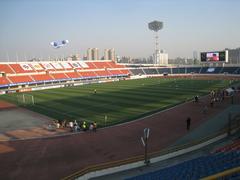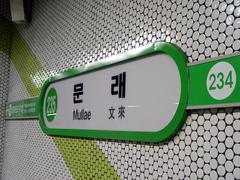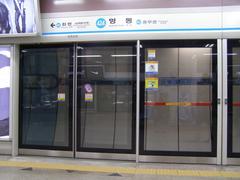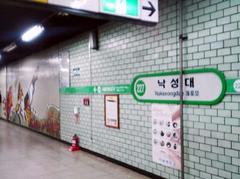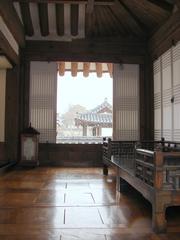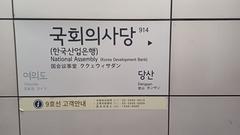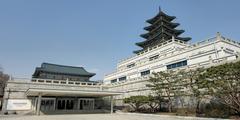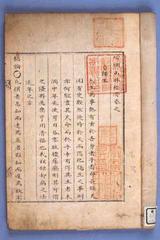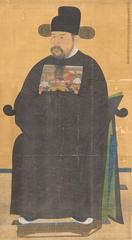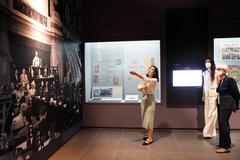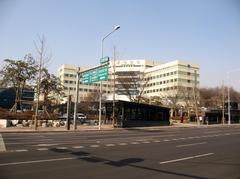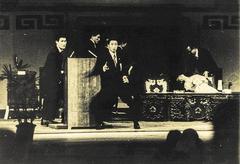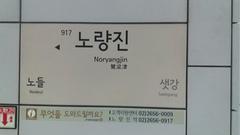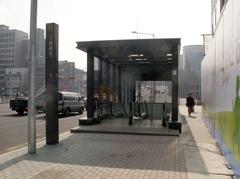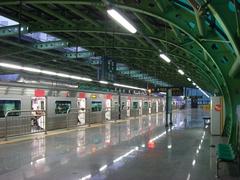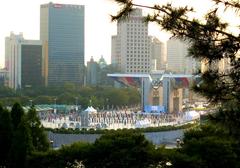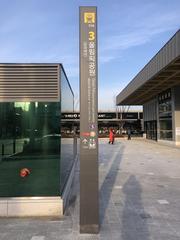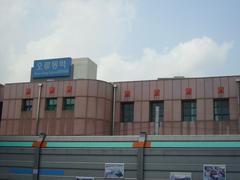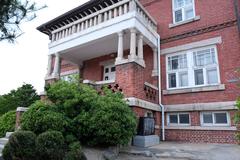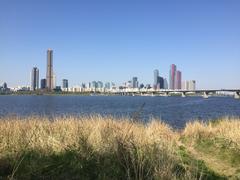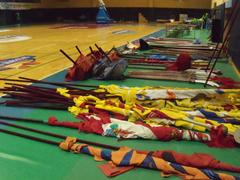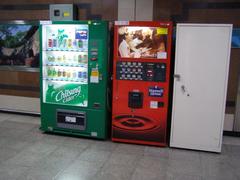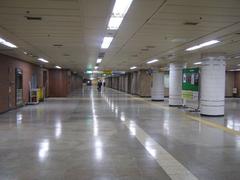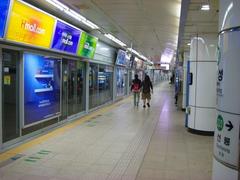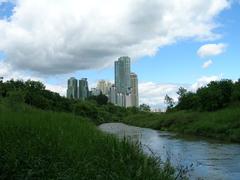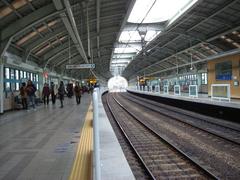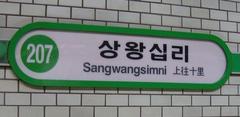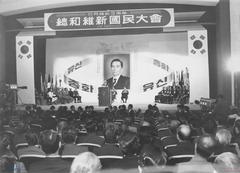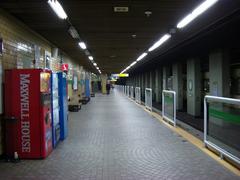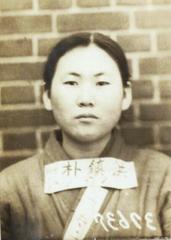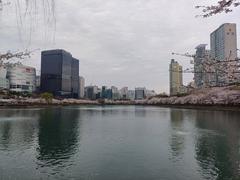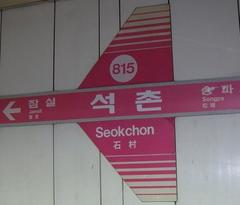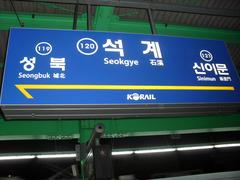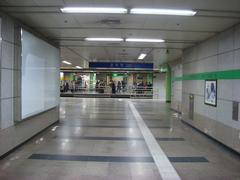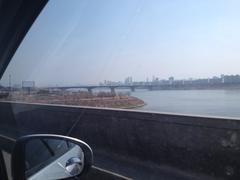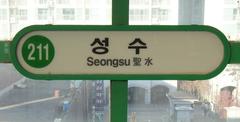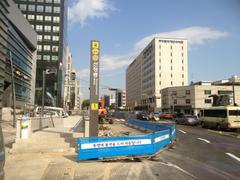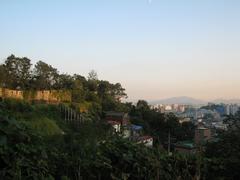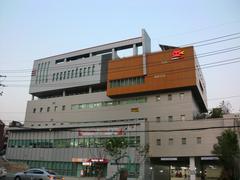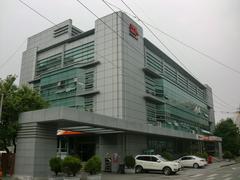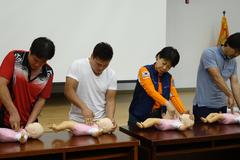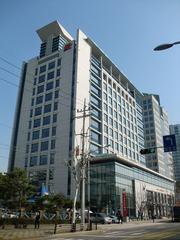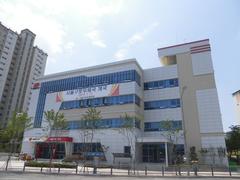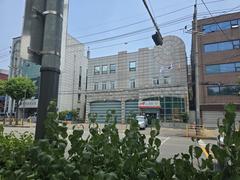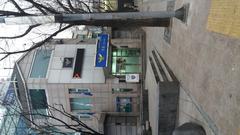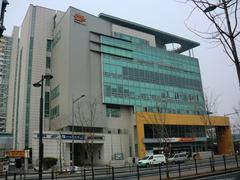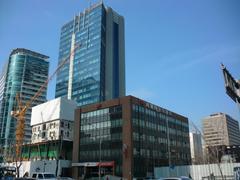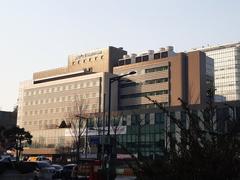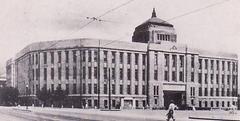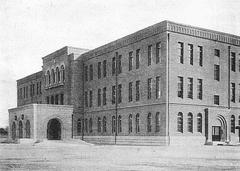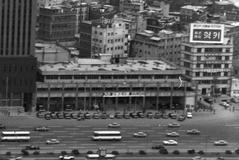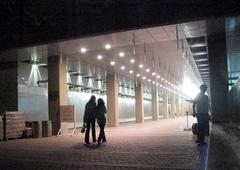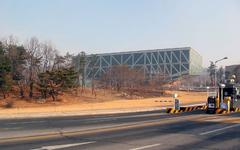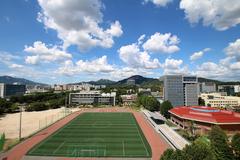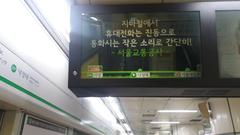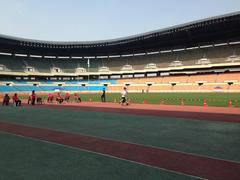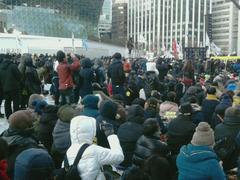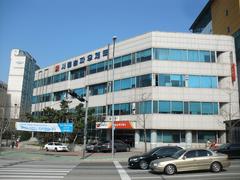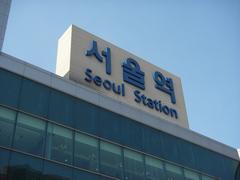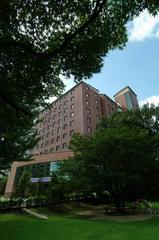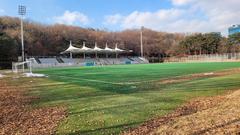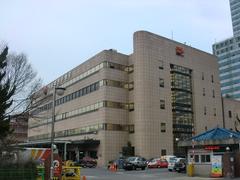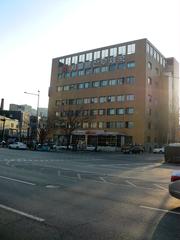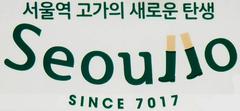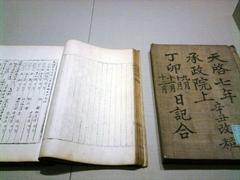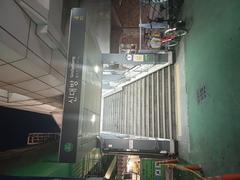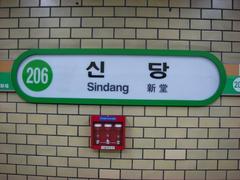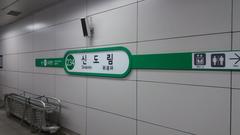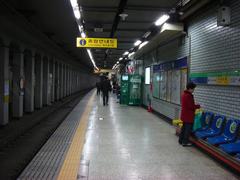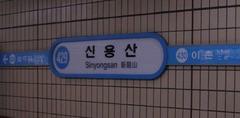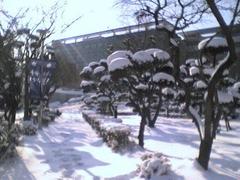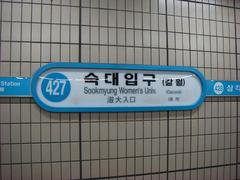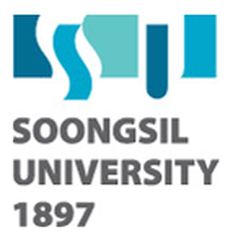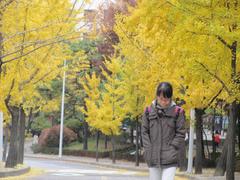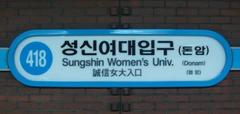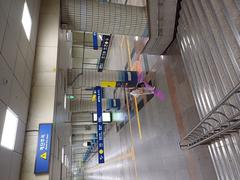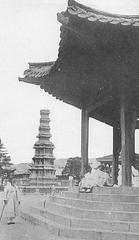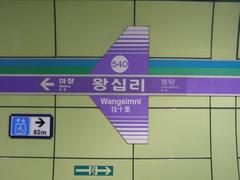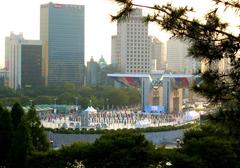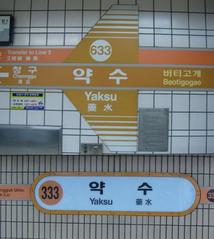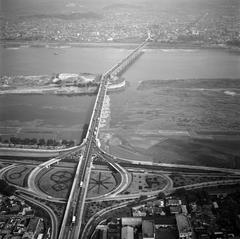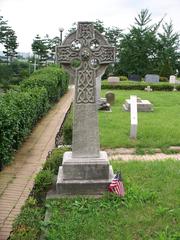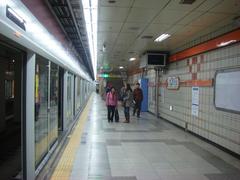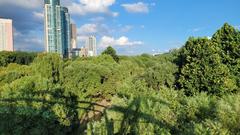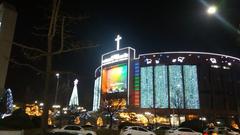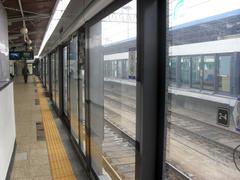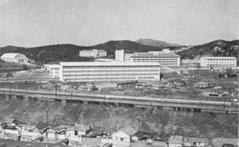Dongduk Women’s University Visiting Guide: Seoul Historical Sites, Tickets, and Hours
Date: 14/06/2025
Introduction
Dongduk Women’s University (DWU) stands as a testament to the advancement of women’s education and empowerment in South Korea. Founded in 1950, DWU emerged during a time when women faced significant barriers to higher education in a patriarchal society. Since its inception, the university has transformed into a prestigious institution, recognized for its academic excellence, vibrant student activism, and enduring cultural significance. This comprehensive guide provides an in-depth overview of DWU’s history, legacy, and practical visitor information, including visiting hours, tours, and nearby attractions. Whether you’re a cultural tourist, academic researcher, or prospective student, this guide will help you appreciate the historical and contemporary importance of this landmark in Seoul (Koreaboo; Artefact Magazine; Trivia Korea).
Historical Overview and Legacy
Founding and Early Development
Dongduk Women’s University was established in 1950 as part of a larger movement for women’s education that began in Korea in the late 19th century. At a time when educational opportunities for women were rare, DWU’s founders sought to create an institution where women could develop their academic and leadership skills beyond the restrictions of gender discrimination (Koreaboo; Artefact Magazine). Over the decades, DWU has grown into a comprehensive university, now offering 18 majors and partnering with international institutions to expand academic opportunities and global perspectives.
Legacy of Empowerment and Social Change
DWU has been pivotal in fostering environments where women can thrive. The university has consistently produced female leaders in politics, business, culture, and entertainment. Its alumnae include notable K-pop idols, such as Girl’s Day’s Yura and Dal Shabet’s Serri and Ah Young, as well as professionals in pharmacy and art education (Koreaboo). These successes underscore DWU’s role as an incubator of female talent and as a force for societal transformation.
Supportive academic and social environments at women’s universities like DWU are linked to higher employment rates and career advancement for graduates compared to their coeducational peers (Medium).
Academic Excellence and Research Contributions
DWU is recognized for its robust academic programs across sciences, arts, humanities, and social sciences. As of 2025, DWU is ranked 81st in South Korea and 4,095th globally, with strong research contributions in biology, chemistry, medicine, engineering, and art and design (EduRank). Its focus on fashion design and liberal arts has attracted national attention, while partnerships with more than a dozen international universities enrich the educational landscape.
Safe Spaces and Feminist Discourse
A core tenet of DWU’s identity is its commitment to providing a safe, supportive environment for female students. Courses addressing feminism, labor, and gender equality empower students and foster critical discussion, which is often less accessible in coeducational settings (Medium). The campus is a sanctuary where students can address societal challenges and advocate for change, a role highlighted during the 2024 protests over proposed coeducation policies (KBizoom).
Contemporary Challenges
DWU, like other women’s universities in South Korea, faces demographic shifts and debates about transitioning to coeducation due to declining birth rates and economic pressures (KoreaPro). The 2024 student protests against these changes reflected concerns about maintaining the university’s founding mission and preserving essential safe spaces (Artefact Magazine). Despite these challenges, DWU remains a focal point for advocacy and solidarity among Korea’s women’s universities.
Cultural Influence and Notable Alumni
The university’s alumnae network is extensive and influential, particularly in the arts, entertainment, education, and public service sectors (Koreaboo). Regular cultural events, public lectures, and exhibitions reinforce DWU’s status as a center of Korea’s feminist and cultural movements.
Academic Partnerships and International Outlook
DWU’s global collaborations expand learning opportunities for students and faculty, fostering academic exchanges and joint research initiatives (Koreaboo). This international engagement positions DWU as a leader in women’s education, balancing tradition and innovation.
Visiting Dongduk Women’s University: Practical Information
Location and Access
- Address: 60, Dongduk-ro, Seongbuk-gu, Seoul, South Korea
- Transportation: Accessible via Wolgok Station (Line 6, Seoul Metro); multiple bus routes serve the campus.
Visiting Hours
- General Visiting Hours: Monday to Friday, 9:00 AM to 6:00 PM
- Saturday: 10:00 AM to 4:00 PM (limited access)
- Closed: Sundays and public holidays
Note: Some buildings may have restricted access during university events or protests. Please check the official DWU website for updates.
Admission and Tours
- Campus Admission: Free for visitors; some exhibitions or performances may require tickets.
- Guided Tours: Available during special events or by appointment. For groups of 10 or more, advance booking is recommended.
Accessibility
DWU is equipped with ramps, elevators, and accessible restrooms in major buildings. Visitors with special needs should contact the visitor center in advance to arrange accommodations.
Campus Highlights and Architecture
- Centennial Memorial Hall: A striking example of modern architecture, featuring rooftop gardens and panoramic views (ArchDaily).
- Chungang Academic Information Center: The main library, open to visitors (resource access may be restricted).
- Yuldong Memorial Music Hall & Performing Arts Hyehwa Campus: Hosts regular performances and events.
- Dongduk Art Gallery (Insadong): Off-campus gallery showcasing student and faculty artwork.
- Democracy Square: Central hub for student gatherings and activism.
Arts, Culture, and Events
DWU’s vibrant arts scene includes exhibitions, performances, and cultural festivals, many of which are open to the public. For schedules and ticketing, consult the DWU official website or social media.
Dining and Amenities
On-campus cafeterias, coffee shops, and convenience stores are available to visitors. Student lounges offer comfortable spaces for relaxation.
Nearby Attractions
Enhance your visit by exploring the Korea Furniture Museum, Bukchon Hanok Village, Jogyesa Temple, Insadong cultural district, and Cheonggyecheon Stream—all within easy reach of DWU.
Visitor Etiquette and Safety
- Respect campus rules and designated areas, especially during student activism.
- Photography is generally permitted outdoors; seek permission for indoor photography and during sensitive events.
- Avoid disrupting classes and university events.
- For real-time updates on campus activities, refer to university announcements (Straits Times).
Frequently Asked Questions (FAQ)
Q: What are the visiting hours for Dongduk Women’s University?
A: Monday to Friday, 9:00 AM to 6:00 PM; Saturdays, 10:00 AM to 4:00 PM; closed Sundays and holidays.
Q: Is there an entrance fee?
A: No, campus admission is free. Some events may require tickets.
Q: Are guided tours available?
A: Yes, during special events or by prior arrangement.
Q: How accessible is the campus?
A: The campus is equipped with ramps, elevators, and accessible restrooms.
Q: How do I get to DWU?
A: Take Seoul Metro Line 6 to Wolgok Station or use city bus services.
Q: Can I photograph the campus?
A: Photography is allowed outdoors; request permission for indoor or sensitive areas.
Summary: Key Points and Travel Tips
- DWU is a leading women’s university in Seoul, renowned for its academic excellence, activism, and cultural influence (Artefact Magazine; Trivia Korea).
- The campus offers free admission, guided tours, accessible facilities, and proximity to major Seoul attractions.
- DWU’s legacy is visible in its architecture, exhibitions, and ongoing role in the movement for gender equality (Koreaboo; KBizoom).
- For updated information and event schedules, follow the university’s official channels or use the Audiala app (ArchDaily; KoreaPro; EduRank).
Further Reading and Official Resources
- Koreaboo: Schools K-pop Idols Attend
- Artefact Magazine: Girls Never Die
- Trivia Korea: Dongduk Women’s University War
- Medium: Women Only or Coed?
- EduRank: Dongduk Women’s University Rankings
- KBizoom: Actress Kim Soo Jung Opposes Coeducation
- KoreaPro: Women-only Universities Debate Co-education
- ArchDaily: Centennial Memorial Hall
- Straits Times: Protests in Women’s Universities
- Dongduk Women’s University Official Website
